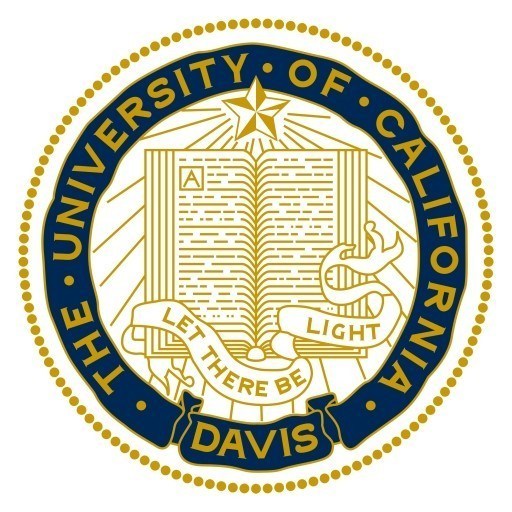Photos of university / #ucdavis
Anthropology is the systematic study of humanity, with the goal of understanding our evolutionary origins, our distinctiveness as a species, and the great diversity in our forms of social existence across the world and through time. Anthropology is divided into four subfields. Sociocultural anthropologists interpret the content of particular cultures, explain variation among cultures, and study processes of cultural change and social transformation. Davis sociocultural anthropologists conduct research on most areas of the world, focusing on such topics as: human ecology; gender relations; culture and ideology; demography and family systems; race, class, and gender inequality; resistance movements; colonialism, neocolonialism, and development; cultural politics in the West.
Linguistic anthropologists study languages and other aspects of human communication. This work may be contemporary, or it may involve reconstructing the history of a language no longer spoken. Davis linguistic anthropologists study language as it is used to create and maintain gender and ethnic identities, the effects of linguistic diversity on communication between groups, the connections between language and worldview, and the origins and use of non-alphabetic writing systems of the world.
Archaeologists study the material remains of present and past cultural systems to understand the technical, social, and political organization of those systems and the larger culture evolutionary process that stand behind them. The Davis program in archaeology emphasizes research in California and the Great Basin, but also supports the study of hunter-gatherer systems in general, and is currently engaged in such research in Australia and Asia.
Biological anthropologists study a variety of aspects of human evolutionary biology. Some examine fossils and apply their observations to understanding human evolution; others compare morphological, biochemical and physiological adaptations of living humans to their environments; still others observe behavior of nonhuman primates (monkeys and apes) to understand the roots of human behavior.
Undergraduates at UC Davis may major in anthropology in two ways. The Bachelor of Arts gives a background in all four subfields, with an emphasis in sociocultural anthropology. The Bachelor of Science program has much in common with a major in zoology or other biological sciences, and is appropriate for students interested in biology or applications of the natural sciences in archaeology.
Careers in Anthropology
A Bachelor of Arts degree in anthropology provides the student with basic skills of critical analysis, writing, and cross-cultural understanding, which have many applications in public service or political activism, and in the private sector. An emphasis in sociocultural anthropology could prepare one for work in development, community organizing, policy analysis, and social research. Linguistic anthropologists may work in the areas of inter-cultural communication, language revitalization, and literacy programs. An emphasis in archaeology yields unusually bright prospects for entry-level employment or degree-related careers with one of many Federal and State agencies and private cultural resource management firms. A Bachelor of Science degree provides suitable preparation for Medical or Dental School.
An anthropology degree with appropriate courses in education also can prepare one for high school teaching in social or natural sciences. However, most practicing anthropologists hold jobs in colleges or universities, where they teach and conduct research. Such jobs require Ph.D. level graduate training.
Students in the social sciences have a number of opportunities to do field work through internships in state and federal agencies, in private businesses and other institutions where they can put into practice what they are learning in their classes. These internships often help students better understand their career interests and it is not unusual for internships to lead to employment opportunities after graduation.
The social sciences provide a strong liberal arts foundation on which a student can build a rewarding career in many areas. Some graduates put their knowledge to work in fields such as international trade, public administration, personnel work, marketing and sales, or banking and finance. Some students use their social science majors as stepping stones to graduate level professional programs in such fields as education, social work, administration and law. Many who graduate in the social sciences continue their studies, pursuing the Ph.D. and a career in research or teaching.
| Evolutionary Emphasis: | |
| Preparatory Subject Matter |
54-60 |
| Anthropology 1, 2, 3 | 12 |
| Biological Sciences 2A, 2B, 2C. | 14 |
| Chemistry 2A, 2B, and 8A, 8B, or 118A, 118B | 16-18 |
| Mathematics 16A-16B-16C or 17A-17B-17C or 21A-21B-21C | 9-12 |
| Anthropology 13, Statistics 13, 32, 100, or 102 | 3-4 |
| Depth Subject Matter |
45 |
| Anthropology 151 or 152 | 4-5 |
| Anthropology 153, 157, or 159 | 3-5 |
| Anthropology 154A or 154B | 5 |
| Three additional courses in anthropology chosen in consultation with evolutionary track undergraduate adviser | 8-12 |
| Biological Sciences 101 | 4 |
| Evolution and Ecology 100 | 4 |
| Additional units from the list below to achieve a minimum of 45 upper division units | 10-14 |
| Anthropology 101, 102, 103, 105, 122A, 128A, 151, 152, 153, 154A 154B, 154C, ANT 154CL, 156, 157, 157L, 158, 159, 180, 182, 185; Anatomy, Physiology and Cell Biology 100; Biological Sciences 102, 103; Cell Biology and Human Anatomy 101, 101L; Environmental Science and Policy 100; Evolution and Ecology 101, 102, 103, 104, 105, 138, 141, 147, 149, 175; Exercise Science 103, 115; Geology, 107, 107L, 108, 144, 146; History and Philosophy of Science 131; Molecular and Cellular Biology 120L, 121, 150, 150L, 160L, 161, 162, 163, 164; Neurobiology, Physiology, and Behavior 101, 101L, 102, 123, 124, 150, 152; Psychology 101, 113, 121, 122, 123, 124; Statistics 104, 106, 108, 130A, 130B; Wildlife, Fish, and Conservation Biology 141, 154 | |
| Total Units for the Major |
99-105 |
| Recommended | |
| Anthropology 5, 15, 50; Geology 1; Psychology 1 |
Requirements
- To be considered for freshman admission to the University of California, you must earn a high school diploma or equivalent
- The scholarship requirement is satisfied if you earn a GPA of 3.00 or higher. All courses must be completed with a C grade or better. Applicants who are not California residents must earn a GPA of 3.40 or higher
- Achieve a minimum score of 550 on the paper-based Test of English as a Foreign Language (TOEFL), 213 on the computer-based TOEFL or 80 on the Internet-based TOEFL.
- Achieve a minimum score of 7 (academic module) on the International English Language Testing System (IELTS).
The University of California offers a comprehensive range of financing options for students enrolled in its Anthropology degree programs. Financial aid opportunities include federal and state grants, scholarships, work-study programs, and loan options designed to support diverse student needs. Federal grants such as the Pell Grant provide need-based assistance to eligible undergraduate students, while Cal Grants are state-funded awards aimed at California residents demonstrating financial need. Additionally, the university offers numerous scholarships based on academic achievement, socioeconomic background, and special talents, which are awarded annually and do not require repayment. Work-study programs enable students to gain work experience while earning funds to help cover educational expenses; these programs are available to eligible students who demonstrate financial need and are awarded through the university's financial aid office. Loans, both federal and private, are also accessible for students requiring additional funding, with federal loans including subsidized and unsubsidized Stafford loans that offer relatively low interest rates and flexible repayment options. The University of California provides comprehensive financial planning services, including application guidance for financial aid, scholarship searches, and budgeting assistance to help students manage their educational expenses effectively. International students and out-of-state residents may have access to different financial aid sources, including institutional scholarships and private loan options, although federal aid is generally limited to eligible U.S. citizens and permanent residents. The university encourages prospective students to complete the Free Application for Federal Student Aid (FAFSA) or the California Dream Act Application to determine their eligibility for various financial aid programs. Furthermore, there are payment plans available that allow students and families to spread out payments over the academic year, making higher education more accessible and affordable. UC campuses are committed to helping students minimize debt and maximize financial resources through ongoing support and advising, ensuring that students can focus on their academic and research pursuits within the Anthropology program without undue financial stress.
The Anthropology program at the University of California offers a comprehensive exploration of human beings, their societies, cultures, and biological histories. This program is designed to provide students with a broad understanding of the diverse aspects of human life across different times and locations. Students enrolled in this program engage in a multidisciplinary approach, integrating insights from archaeology, biological anthropology, linguistic anthropology, and cultural anthropology to gain a holistic view of humanity.
The curriculum emphasizes both theoretical foundations and practical skills. Undergraduate students have the opportunity to participate in hands-on archaeological research, biological fieldwork, and ethnographic studies, which are essential for developing a well-rounded understanding of anthropological methods. The program also encourages comparative analysis, allowing students to explore the similarities and differences among human societies, past and present.
Faculty members are renowned experts in their fields, contributing to cutting-edge research and often involving students in their projects. The program’s structure promotes critical thinking, cultural awareness, and research proficiency. Students can pursue a Bachelor of Arts in Anthropology, with options to specialize in areas such as socio-cultural anthropology, archaeology, biological anthropology, or linguistic anthropology.
The university provides a vibrant campus community with numerous resources, including state-of-the-art laboratories, museums, and libraries that support student research. The program also offers opportunities for internships, study abroad programs, and participation in conferences, enabling students to gain practical experience and establish professional networks.
Graduates of the program are well-prepared for diverse careers in academia, research, cultural resource management, public policy, health sciences, and international development. Many alumni go on to pursue advanced degrees in anthropology or related disciplines, contributing scholarly insights and public understanding of human diversity and evolution.
Overall, the University of California’s Anthropology program aims to cultivate knowledgeable, ethically conscious, and inquisitive graduates who are equipped to address complex issues related to human history, societies, and biological diversity. Through a combination of rigorous coursework, research opportunities, and community engagement, students develop the skills needed to make meaningful contributions to society and understand the complexities of the human condition in a globalized world.







